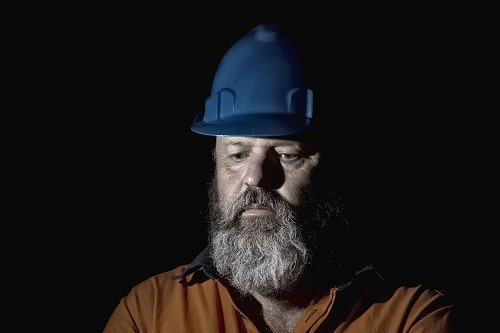HSE has warned against complacency after its annual statistics released today show that while fatalities have fallen, there are still areas of concern.
News
Fatal accidents on long-term downward trend, says HSE as annual data is released
Annual fatality statistics show that 124 workers were killed in work-related incidents in Great Britain in the past 12 months, down from fourteen from the previous year.
The number of deaths remain broadly in line with pre-pandemic levels, and shows a downward trend over time, with 223 deaths at work occurring twenty years ago (2004/05) and 495 in 1981.
However, the same data release shows that workers aged 60 and over make up 40 per cent of the fatal injuries, despite that age group only making up 12 per cent of the workforce.
 Agriculture, forestry and fishing continues to have the highest rate of fatal injury per 100,000 workers. Photograph: iStock
Agriculture, forestry and fishing continues to have the highest rate of fatal injury per 100,000 workers. Photograph: iStock
The annual fatality statistics cover the period from April 2024 to March 2025.
The most common cause of fatal injuries continues to be falls from a height (35), representing over a quarter of worker deaths in 2024/25.
Agriculture, forestry and fishing continues to have the highest rate of fatal injury per 100,000 workers followed by waste and recycling. Construction reports the highest number of deaths, which, at 35 deaths, is lower than last year (51 deaths) but is still higher than any other industry.
HSE’s Chief Executive Sarah Albon said: “Great Britain is one of the safest places in the world to work, but we must remember each of these deaths represents a tragedy for families, friends and communities.
“Despite the stability in numbers, we cannot accept that fatal accidents are an inevitable part of working life. We are encouraged by the long-term trend but urge against complacency on workplace safety.”
As well as older workers being disproportionately represented in the data, 49 of the 124 people killed were self-employed.
There were also 92 members of the public killed as a result of a work-related accident in 2024/25, an increase of six fatalities from last year’s 86 deaths.
Commenting on the statistics, Ruth Wilkinson, Head of Policy and Public Affairs at IOSH, said: “One death is too many, especially when work-related accidents can be prevented. There were nearly two-and-a-half deaths every week last year, so this is no cause for celebration.”
“Businesses need to ask if all workers are informed and aware of the hazards and risks exposed to them, and the controls in place to prevent harm and protect them. And they need to consider if all workers know their health and safety rights, and their responsibilities.”
Work-related fatal injuries in Britain - report here
NEWS

Ramadan: what employers should know about supporting their workforce
By Belinda Liversedge on 18 February 2026
As Ramadan begins this week, UNISON has reminded employers to think about reasonable adjustments for their Muslim workforce’s religious observance such as fasting, prayers, and flexible schedules.

Nearly half of UK workers afraid to flag risks, finds new research
By Belinda Liversedge on 10 February 2026
A significant “silence gap” is threatening UK workplace safety and operational integrity, according to new data released by training provider Mental Health First Aid (MHFA) England.
Sexual misconduct in dentistry: former GDC fellow warns of ‘culture of silence’
By Belinda Liversedge on 05 February 2026
A former General Dental Council (GDC) clinical fellow is calling for a radical shift in how the dental sector manages workplace risk, warning that a “culture of silence” is masking the problem of sexual misconduct in the profession.



